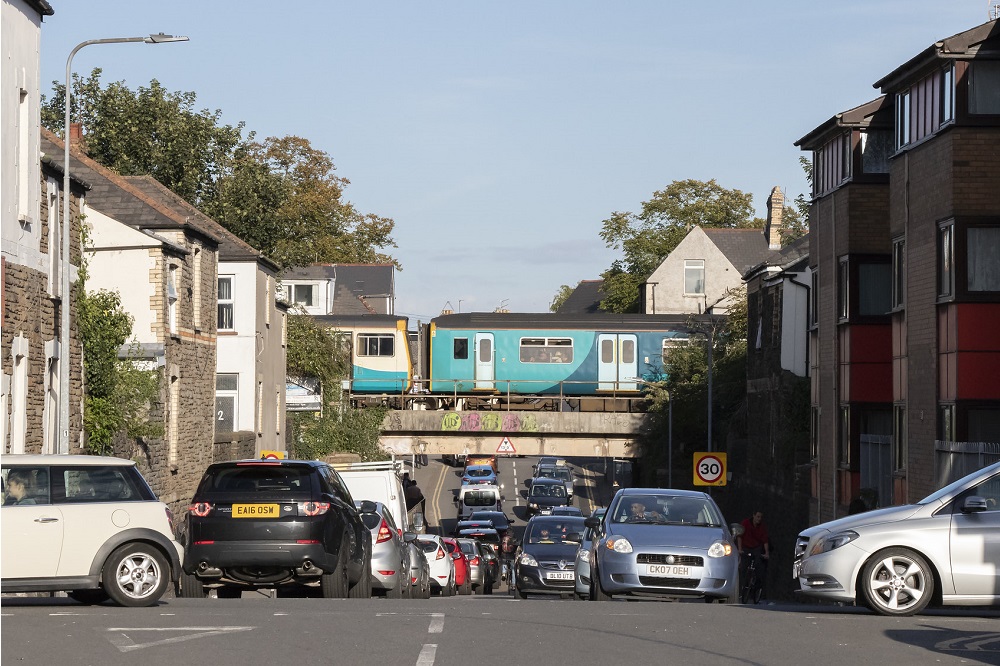Today’s Senedd roundup: Privatised probation services ‘a catastrophic policy’

Owen Donovan, Senedd Home
First Minister’s Questions
Adam Price AM (Plaid, Carms. E. & Dinefwr) brought up the recent coroner’s ruling that Connor Marshall – who was murdered by David Braddon in Porthcawl – was unlawfully killed. At the time, Braddon was being supervised by a privately-run community rehab company after probation services had been part-privatised by the Conservative-Lib Dem Coalition in 2014.
“In 2015, the year of the murder….staff were writing to the company complaining of excessive workloads. Last week, the coroner concluded that the management and supervision of the newly appointed probation worker responsible for David Braddon was woefully inadequate….The Inspectorate of Probation report in July last year reported that 60% of officers thought their workload was unmanageable. Were the concerns raised by probation workers brought to the attention of the integrated offender management Cymru board or the all-Wales criminal justice board on which the Welsh Government is represented….?”
– Adam Price AM
The First Minister wholeheartedly agreed with Adam Price’s assessment of the privatisation of probation services – which the Senedd has condemned before. His belief is that probation and youth justice services should’ve been devolved from the very start because services probation officers rely on, like mental health services and housing, are devolved themselves.
He didn’t have all the information at hand to answer what the Welsh Government knew at the time (promising to provide an update) but adding to his other points, he didn’t believe there was any sort of private market that could be used to provide probation services in Wales.
Cattle slaughtered due to bovine TB increases 24% in a year
Leader of the Opposition, Paul Davies AM (Con, Preseli Pembs), said 12,00 cattle have been slaughtered over the last year due to bovine TB – an “eye-watering” 24% increase. Clearly, farmers were being let down by Welsh Government policies.
“….your policy is not working, otherwise the number of cattle slaughtered due to bovine TB would be decreasing….And whichever way you want to look at this, the fact remains that the Welsh farming sector is under a huge amount of pressure….The unsustainably high number of cattle being slaughtered in Wales is down to your Government’s failure to tackle this disease holistically, and in the meantime, farming communities across Wales are feeling isolated, ignored and neglected.”
– Leader of the Opposition, Paul Davies AM
The First Minister said the marked increase in cattle slaughters was down to more sophisticated bovine TB detection methods, meaning more cases were being picked up. This was no sign government policies were failing.
While there’s a short-term increase in cases, over the last decade the number of new cases has fallen by 37%. A new institute at Aberystwyth University will be the focus of world-leading research into tackling the disease.
Welsh Government commissions study into Cardiff congestion charge plans
Given the publicity around Cardiff’s plans to introduce a congestion charge, Mark Reckless AM (BXP, South Wales East) suggested it was unfair that Cardiff receives the lion’s share of transport investment in the south-east, yet was now considering “taxing Newport, Bridgend and the Valleys to pay for Cardiff” and its transport vision.
The First Minister confirmed the Welsh Government have commissioned a study on the proposal and its potential impact on the surrounding local authorities. This study will be used to formulate a national policy position on congestion charging. Dismissing the idea out of hand was, however, lazy thinking:
“….dismissing all the ways in which we can make a difference in the future as though they were of no relevance to people who live either in the capital city or in the areas that surround it is no way at all to approach what is a fundamentally serious public policy challenge here in Wales, in our capital city and far beyond.”
– First Minister, Mark Drakeford (Lab, Cardiff West)

All new homes to be powered by renewables from 2025
The Welsh Government has launched a consultation on proposals which would mean that all new homes built in Wales from 2025 are powered by renewables.
The proposal forms part of a suite of measures designed to address the climate emergency and reduce carbon emissions from housing – which accounts for around 9% of all emissions in Wales.
“The new homes being built today will exist in 2050. Therefore, we must ensure the standards we set for these homes put us on the right path. This involves improving energy efficiency and moving to cleaner ways to heat our homes.”
– Local Government & Housing Minister, Julie James (Lab, Swansea West)
The measures would be implemented in stages – starting with improved energy efficiency from this year – with the aim for all homes built from 2025 onwards cutting emissions by up to 80% compared to homes built to current standards.
The consultation – available here – closes on 12th March 2020.

“Valleys Tax” claim denied as Cardiff unveils congestion charge plans
Cardiff Council has denied claims from opposition parties and within Labour that plans to introduce a congestion charge for non-Cardiff residents were a “tax on the Valleys”.
The proposal forms part of a transport white paper (pdf) published last week, which proposed £2billion worth of infrastructure investments and incentives to get people out of their cars over the next decade including:
- A “Crossrail” and circle line tram-train system linking western and eastern suburbs, including new South Wales Metro stations at Crwys Road, Ely Bridge, Loudon Square and Roath Park.
- Supports the development of a Cardiff Parkway station at St Mellons.
- Establish a cross-city bus rapid transit network, including a new circular route.
- Completion of a network of segregated cycle lanes by 2022 and expanding the Nextbike bike hire scheme by 2000 cycles.
- Introducing a default 20mph speed limit, a smart traffic management system and the aforementioned £2-per-entry congestion charge for non-Cardiff residents (from 2025).
While the ambition was welcomed, Alun Davies AM (Lab, Blaenau Gwent) and Dr Hefin David AM (Lab, Caerphilly) both expressed reservations that their constituents would be paying for a (Labour-run) Cardiff Council policy.
These claims were denied by Cardiff Council Leader, Cllr. Huw Thomas, who said: “What we would be doing is putting in place alternatives to using the car, and have this go live before any charge came into place.”

Minister: Health boards could be fined for ambulance patient transfer delays
Amidst a difficult winter for ambulance response times and & A&E waiting times, Health Minister, Vaughan Gething (Lab, Cardiff S. & Penarth) raised the possibility of introducing and incentive system to improve performances.
A task force has been established following a review of the amber 999 call system and fines haven’t been ruled out.
The Minister said: “As an immediate step, I have asked officials to develop proposals for a system of incentives to achieve desired improvements. I expect to take a decision within the next couple of weeks to enable the new system to be introduced in time to impact on performance this winter.”
More AMs: “Effective scrutiny saves money”
78,000 people impacted by Health Technology Wales as it marks its second year
Health Technology Wales’ annual report for 2018-19 (pdf), says just under 78,000 people have been impacted by decisions and advice the organisation has made over the last year.
Following a Senedd committee inquiry in 2014, Heath Technology Wales was established in November 2017 to appraise, as well as provide advice and guidance on, new technologies in the healthcare sector. Advice issued by Health Technology Wales was estimated to have saved £5.2million.
Some of the technologies reviews by the organisation include glucose monitors for diabetes, a nerve stimulation device to treat faecal incontinence and positron emission technologies to treat prostate cancer.
Support our Nation today
For the price of a cup of coffee a month you can help us create an independent, not-for-profit, national news service for the people of Wales, by the people of Wales.





How do renewables renew? Also, if you build wind turbines, solar panels, or anything else for that matter, you require a great amount of minerals sourced from mines and quarries. They are busy, at time of writing, in prospecting Lapland and other grazing areas, for lithium and other stuff for car batteries……………………let’s have a bit of honesty here? Not much chance, I guess.
Those kinds of questions will get you into deep s**t with the fundamentalist green falangists who brook no dissent or anything resembling a questioning analytical approach. You either buy the orthodoxy lock stock and barrel or you are persona non grata. The toxins required to manufacture “new more efficient” batteries rank among the most environmentally unfriendly substances up there next to radio active. The damage done to large tracts of upland bog and other carbon retaining soils by the site preparation and erection of wind turbines is a matter of record, but not a record discussed in any great detail.… Read more »
I see you have a “minus” already, Huw. I look at Oddasat (news in Sami -yle Finnish TV) so that’s how I got the info, as the Sami (Lapps) don’t generally like mining. Anyway, agree with you.
humph – I often get that kind of luv on here !! Good job I’ve a hide like a rhino which is environmentally useful also.
How do non-renewables renew; they don’t…! How does water re-water, solar re-solar and wind re-wind; they just do, happens daily… Non-renewables are finite resources; renewables, generally renew daily like Sisyphus; might as well harness the effort…!
Okay, tell us then, from what materials is a wind turbine constructed.